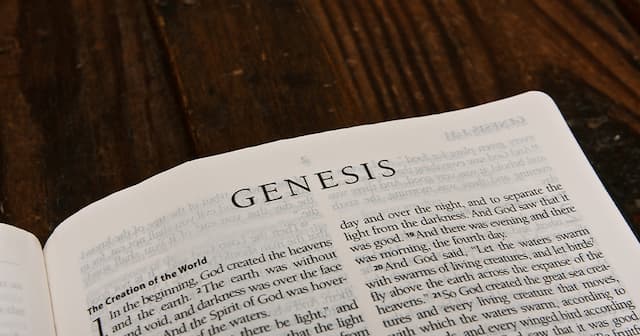Top signs of false prophets

God has warned against false prophets. Image: Pablo Heimplatz|Unsplash
False prophets inundate Christianity with lies and deceptions against God.
As believers, we believe in the credibility of prophets. We have read and learned about them in the Bible as they revealed the authority and power of God throughout the ages. We have also been convinced about the realization of predicted events and continue to witness their actualization as history unfolds.
But, some people who claim to be prophets are not driven by divine and good intentions. False prophets come in many forms and should not be trusted or taken lightly. These charlatans can be your neighbor, friend, or famous preacher of a well-known church congregation.
Understanding how to identify them is crucial for avoiding dangerous consequences. Learning about the essence of prophecy and distinguishing between a genuine and false prophet is critical to our faith and salvation.
A true prophet
“Surely the Lord God does nothing, Unless He reveals His secret to His servants the prophets.”- Amos 3:7
Prophets are God’s messengers. They connect us to a higher power to bring insight and understanding of His will.
Depending on the religion, prophets often take up different roles – from warning of future events revealed through visions to calling out corruption and injustice in our world, guiding us back onto the path of righteousness.
Figures such as Moses, Jesus Christ, Muhammad, and Buddha are well-known Major Prophets that have impacted society for generations and continue to influence culture today.
As prophets transcend religious lines with their message of hope delivered straight from heaven, their presence is an ever-abiding reminder that goodness lives on.
Jesus Christ is the greatest prophet. He stands out among prophets and leaves an indelible mark on history. He accomplished what no one before or after him could have—claiming to be God Himself.
Most importantly, His death and resurrection proved His prophethood, fulfilling all prophecies in the Old Testament. He even conquered death itself—solidifying His claim to be the Son of God our Savior.
Roles and purposes of prophets
“Although the Lord sent prophets to the people to bring them back to him, and though they testified against them, they would not listen.” – 2 Chronicles 24:19
God speaks to us through prophets and imparts His plans for looking after His people. Even more astounding, these prophets only sometimes appear in expected places.
Sometimes they can be unknown or unpopular figures. Female prophets are known as prophetesses. No matter how unexpected or unrecognized a prophet might seem, we should always remember their importance in connecting us with our Heavenly Father.
Here are the primary roles of a prophet:
• Prophets reveal God’s will and plans.
• Prophets amplify the credibility of the Scriptures.
• Prophets lead and protect God’s people.
• Prophets remind people of the consequences of their actions.
• Prophets tell people the need to repent.
False Prophets
“Watch out for false prophets. They come to you in sheep’s clothing, but inwardly they are ferocious wolves.” – Matthew 7:15
Have you ever heard someone declare they have a direct line to a higher power? History has seen countless false prophets who have charmed and twisted the minds of those desperate for wealth, health, or spiritual fulfillment.
Unfortunately, these so-called messengers are often only out for their gain, using their powerful rhetoric to control the gullible and vulnerable with fear tactics and emotional manipulation.
Don’t be fooled! It’s essential to recognize the signs of a false prophet if you want to safeguard yourself from any potentially devastating consequences. In today’s world, stay humble and be aware before trusting anyone claiming divine knowledge or power.
Top signs of false prophets
Here are several ways to spot false prophets in our midst:
1. They proclaim exclusive access to God’s truth
False prophets are notorious for suggesting they have superior authority regarding God’s will, insisting that their unique insight is their gateway to interpreting Scripture or uncovering revelations.
2. They use fear to control people
False prophets often use fear-based tactics to manipulate people into following them. They may warn of impending disaster or threaten divine punishment if their followers don’t obey their commands.
3. They demand money or material possessions
False prophets often use religion to make money or acquire material possessions. They may require exorbitant offerings or ask for expensive gifts in exchange for blessings or spiritual guidance.
4. They exhibit immoral behavior
False prophets may preach one thing but act in another way. They may engage in unethical conduct or abuse their power, demonstrating a lack of the moral character expected of a true spiritual leader.
5. They need the fruits of the Spirit
False prophets may talk much about spirituality, which is not apparent in their lives. According to Galatians 5:22-23, “love, joy, peace, patience, kindness, goodness, faithfulness, gentleness, and self-control” should reside in them. None of these will likely be found in false prophets.
6. They deny Jesus’ divinity
It’s not just what they say — it’s who they say Jesus is when distinguishing a false prophet from someone whose knowledge of the Word is based on Truth. If you claim to be a spiritual leader yet deny that Jesus is the Son of God and Savior, you are simply preaching falsehoods.
7. They preach an alternative gospel
This can take various forms depending on the agenda or beliefs the false prophet wishes to promote with their teachings. These versions vary from the Gospel as told by The Bible.
Beware of false prophets
“They traveled through the whole island until they came to Paphos. There they met a Jewish sorcerer and false prophet named Bar-Jesus.” – Acts 13:6–7
Bar Jesus, also known as Elymas, is mentioned in the New Testament. He was a Jewish magician and false prophet living on Cyprus’s island. Bar Jesus means “son of Jesus” or “son of Joshua” in Aramaic.
He opposed the Apostles Paul and Barnabas when they were preaching the Gospel on the island and tried to turn the governor, Sergius Paulus, away from the faith. In response, Paul condemned Elymas as a “child of the devil” and temporarily blinded him. After witnessing this event, Sergius Paulus converted to Christianity.
In today’s world, false prophets can take many forms. They might be self-proclaimed gurus, televangelists, or leaders of online spiritual communities. They may present themselves as knowledgeable or wise, but their teachings are often based on incomplete or incorrect information.
False prophets can be dangerous because they can manipulate people’s beliefs, emotions, and actions. They may use fear, guilt, or other tactics to gain followers and control their behavior. In extreme cases, false prophets may lead their followers to engage in harmful or illegal activities.
We must learn to be discerning and critical thinkers to protect ourselves from false prophets. We should always question the motives and sources of information of those who claim to be spiritual leaders. We should seek out diverse perspectives and evaluate them carefully before accepting them as truth.
The warning to “beware of false prophets” is as relevant today as it was in ancient times.
The Gift of prophecy: Edification in the modern church

Image: Edwin Andrade|Unsplash
“I would like every one of you to speak in tongues, but I would rather have you prophesy. The one who prophesies is greater than the one who speaks in tongues, unless someone interprets, so that the church may be edified.” – 1 Corinthians 14:5
The awe-inspiring gift of prophecy is one of the spiritual gifts given to believers by the Holy Spirit. This massive list of blessings includes teaching, healing, and speaking in tongues.
Prophecy is a remarkable and beneficial tool for enlightening, encouraging, and comforting others. As the Apostle Paul instructs, we should desire and strive for prophetic messages from God because they will benefit individuals and the entire church.
Modern prophets often manifest differently: spontaneous utterances during worship services, a word of wisdom whispered to someone there or a message delivered through dreams or visions.
Beware of false prophets. Prophecies need to stay true to Scripture and honor the loving nature of our Creator.
The gift of prophecy still exists today. God gives guidance, warning, and revelations through the modern-day prophets. They reveal God’s will and concern for His beloved children.






